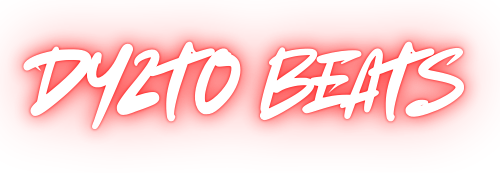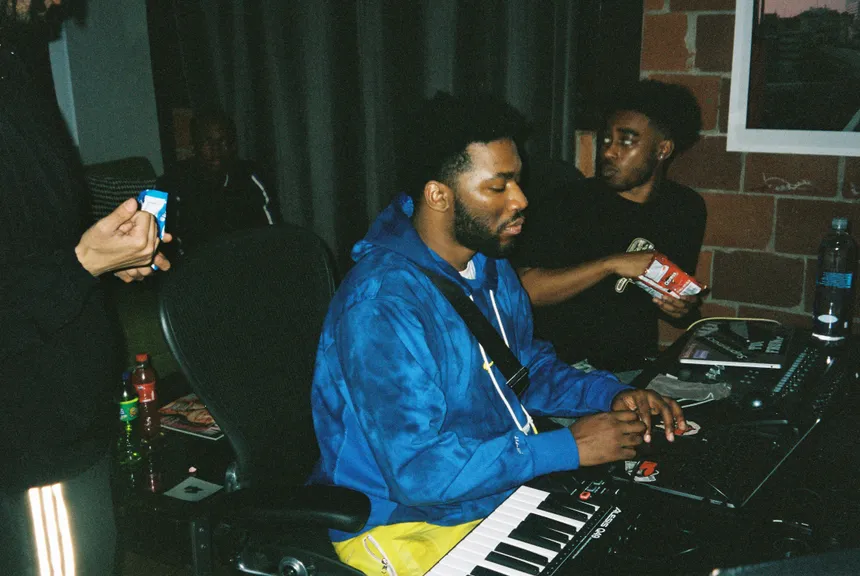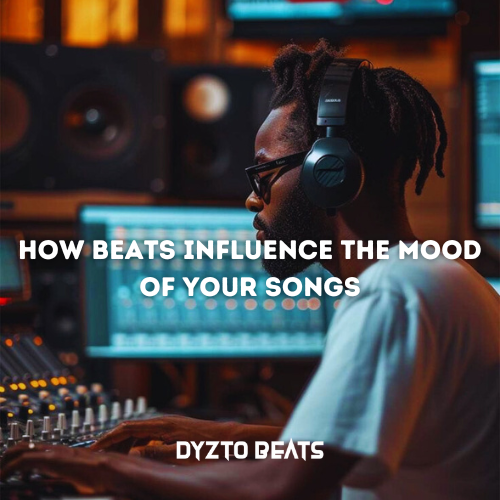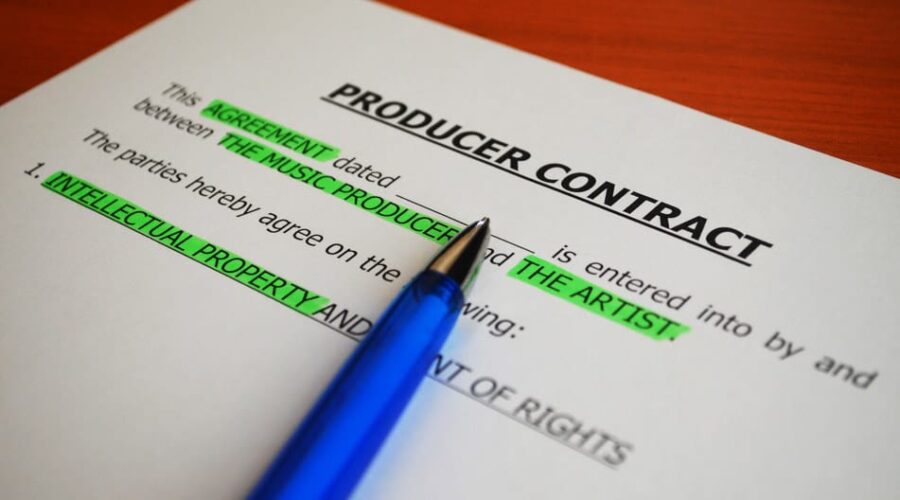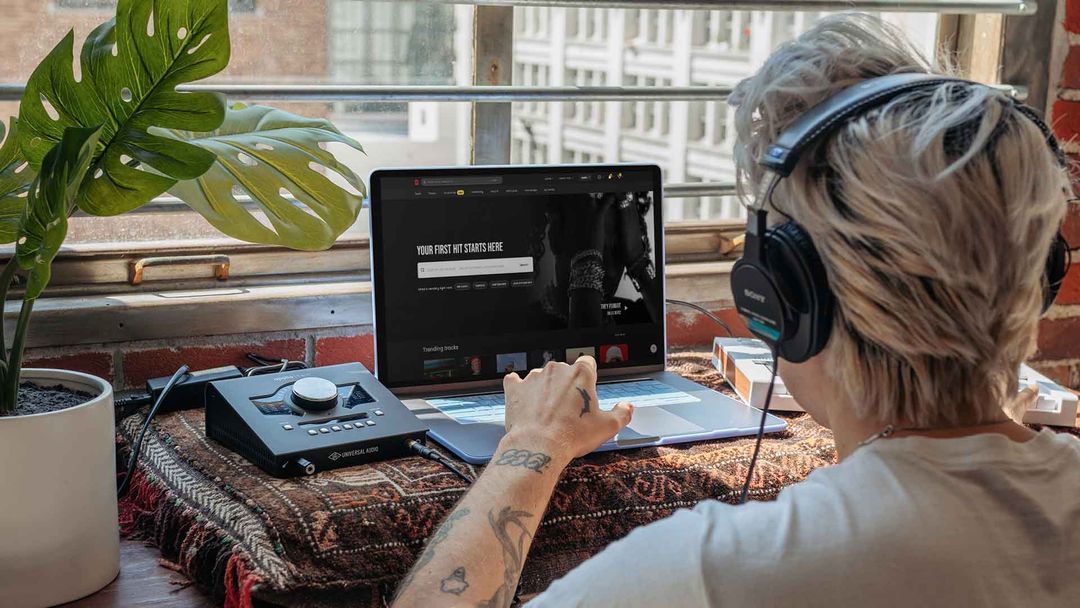How to Communicate Your Vision to a Beatmaker
Collaborating with a beatmaker can turn your song ideas into a reality, but it all starts with clear communication. The more effectively you share your vision, the better your chances of creating the perfect track together. Let’s dive into some tips on how to convey your musical ideas to a beatmaker.
Share Your Inspirations and Influences
One of the easiest ways to start is by sharing songs or artists that inspire you. Let your beatmaker know which tracks you love and why. Is it the heavy bassline, the smooth melodies, or the punchy drums that draw you in? Providing a few reference tracks helps set the tone and direction for your project.
Don’t hesitate to explain the vibe you’re going for. Are you aiming for a chill, lo-fi feel or a high-energy trap banger? The clearer you are about your inspirations, the more your beatmaker can match your vision. Remember, beatmakers can’t read your mind, but they can work wonders with a little guidance.
Describe the Emotions and Story
Music is all about emotion and storytelling. To help your beatmaker create a beat that aligns with your vision, explain the emotions you want the track to evoke. Is it supposed to feel uplifting, nostalgic, or intense? The mood you want your song to convey can influence everything from the tempo to the instruments used.
If your song has a story behind it, share that too. Maybe you’re writing about overcoming challenges, celebrating love, or reflecting on life’s struggles. Letting your beatmaker in on the song’s story will help them craft a beat that complements your lyrics and enhances the overall impact.
Be Specific About the Beat Structure

Do you have a specific structure in mind for your song? Communicate that clearly. Let your beatmaker know if you want a long intro, a dramatic build-up before the chorus, or a sudden drop after the verse. Sharing these details early on helps avoid revisions later.
Even if you don’t have the entire structure mapped out, providing an outline can be a huge help. For example, mentioning that you want the chorus to hit hard with layered drums or that the bridge should have a stripped-down feel will guide the beatmaker’s approach. Specifics make the collaboration process smoother and more productive.
Use Simple Language and Examples
You don’t need to be an expert in music theory to communicate with a beatmaker. Use simple language and real-life examples to describe what you want. If you like the way a certain song fades out or transitions into a chorus, point it out. It’s easier for beatmakers to understand references than abstract descriptions.
If you have a way to record yourself humming or tapping out a beat idea, even better! Little voice memos or sketches can bridge the gap between your ideas and the final product. Your beatmaker will appreciate these efforts and use them as a starting point to fine-tune the track.
Be Open to Suggestions
While it’s important to share your vision, remember to keep an open mind. Beatmakers bring their own expertise and creativity to the table. They might suggest adding elements you hadn’t considered or tweaking the arrangement for a better flow. Being flexible and open to feedback can lead to a result that exceeds your expectations.
Think of this as a collaborative journey. If you stay too rigid in your vision, you might miss out on the unique flair that a beatmaker can add. Trusting their instincts and skills, while still staying true to your original idea, often leads to the best outcome.
Provide Feedback Throughout the Process

Don’t wait until the beat is finished to give feedback. Providing input during the creation process can save time and ensure that the final product aligns with your vision. If your beatmaker sends you a draft, take time to listen closely and note what you love and what could be improved.
Be specific with your feedback. Instead of saying “I don’t like this part,” try “Can we make the drums a bit punchier here?” or “I’d love a smoother transition into the chorus.” Constructive and clear feedback helps your beatmaker understand your needs and make adjustments quickly.
Understanding Producer Tags and Their Importance
If you’re an artist or a fan of music, you’ve probably heard a producer tag—those catchy, sometimes iconic snippets that play at the beginning of a song. But what exactly are they, and why are they so important? Let’s break down everything you need to know about producer tags and their role in the music industry.
What Are Producer Tags?
Producer tags are short audio clips that producers include in their beats to identify their work. You’ve probably heard some memorable ones, like “Metro Boomin want some more, n**ga!” or “Mustard on the beat, ho!” and even “Dyzto, this one’s crazy mhmm :)” These tags act like a signature, letting listeners know who created the beat before the song even begins.
Think of producer tags as a painter’s signature on a canvas. It’s a way for producers to claim their work, showcase their brand, and gain recognition. Tags are especially important for producers who sell beats online—they ensure that their sound stands out and isn’t mistaken for someone else’s.
Why Producer Tags Matter
Producer tags are more than just a catchy intro. They play a big role in branding and marketing. A recognizable tag can help build a producer’s reputation and make their sound more memorable. When listeners hear a familiar tag, they instantly know who’s behind the music. This association can boost the producer’s profile and help them attract more clients.
Tags also offer a layer of protection. In an age where music is shared and downloaded at lightning speed, it’s easy for beats to be used without credit. A producer tag ensures that even if a beat is shared without permission, the original creator still gets acknowledgment.
The Art of Creating a Good Tag
Not all producer tags are created equal. A great tag should be unique, catchy, and not too intrusive. You don’t want a tag that disrupts the flow of the song or annoys listeners. Instead, it should complement the beat and fit seamlessly with different genres.
Many producers use voice actors, friends, or even snippets of famous phrases to create their tags. The key is to find something that resonates with your brand. If your beats are dark and moody, a high-energy, playful tag might not be the best fit. Take some time to experiment and find a tag that feels authentic to your style.
How Tags Benefit Artists
You might think producer tags only matter to the producers, but they benefit artists, too. When you work with a well-known producer, their tag can add credibility to your track. It’s like a badge of quality—listeners know that a song tagged with a famous producer’s name is likely to have a top-notch beat.
Tags also help artists build connections with fans who follow certain producers. If someone loves beats by a particular producer, hearing that tag at the start of your song could draw them in and make them more likely to listen.
When and Where to Use Tags
While producer tags are important, knowing when and where to use them is key. Most producers include their tags at the beginning of a beat or just before the drop. This placement helps identify the track without overshadowing the main vocals.
If you’re collaborating with a producer and prefer a different placement, just communicate your vision. Some artists like subtle tags, while others want them loud and clear. Finding a balance that works for both the producer and the artist ensures that the final song sounds professional.
Custom vs. Standard Tags
Many producers use a single, standard tag across all their beats. This creates consistency and helps listeners recognize their work easily. However, some producers offer custom tags for exclusive projects. A custom tag can make a song feel unique and tailored, which adds a special touch.
If you’re an artist looking for a custom sound, talk to the producer about creating a personalized tag. This can give your track a distinct edge and make it stand out from the crowd.
Negotiating Exclusive vs. Non-Exclusive Beat Rights
If you’re diving into the world of music production or just starting out as an artist, understanding how to negotiate beat rights is essential. Choosing between exclusive and non-exclusive beat rights can affect your music’s reach, budget, and future opportunities. Let’s break down how to negotiate these rights so you can make the best decision for your music.
Understanding the Basics
First things first—what’s the difference between exclusive and non-exclusive beat rights? Non-exclusive rights mean that the producer can sell the same beat to multiple artists. It’s like renting a shared apartment where you and others can live (in this case, use the beat) at the same time. Exclusive rights, on the other hand, are like buying your own house. You own the beat, and the producer cannot sell it to anyone else.
Exclusive rights come with more freedom but also a higher price tag. Non-exclusive rights are budget-friendly and perfect for getting started but come with limitations like usage caps and shared ownership. Understanding these basics helps you know what to expect when negotiating.
Start by Knowing Your Budget
Budget is a key factor when deciding between exclusive and non-exclusive beat rights. If you’re working with a tight budget, non-exclusive rights are usually the way to go. They let you create more songs and experiment with different styles without draining your wallet.
However, if you have a bigger budget and you’re serious about taking your music to the next level, exclusive rights might be worth considering. Having a unique beat means no other artist will release a song with the same instrumental, which can be crucial for building a unique brand.
Understand the Terms and Conditions
Before you negotiate, make sure you’re crystal clear on the terms. Non-exclusive licenses often come with limits on how many streams, downloads, or live performances you can have. Ask questions like, “What happens if my song exceeds the stream limit?” or “Can I upgrade my license later?” This clarity will help you plan for potential growth.
Exclusive rights generally offer more flexibility, but the terms can still vary. Does the license include full ownership, or are there royalties involved? Will the producer retain any rights, like credit or a small percentage of earnings? Make sure all these details are discussed upfront to avoid surprises later.
Show Your Vision
Producers are more likely to negotiate if they see that you’re serious about your craft. Share your vision for the song and explain how you plan to promote it. Whether it’s through social media, live shows, or music videos, showing that you’re invested can make a producer more willing to negotiate on price or terms.
Let’s say you’re looking at an exclusive beat but can’t quite afford the full price. Sharing your plan might persuade the producer to offer a payment plan or slightly lower the cost. Remember, producers want their work to be part of successful projects, so showing your dedication can go a long way.
Be Open to Compromise
Negotiating isn’t just about getting the lowest price—it’s about finding a win-win solution. If you can’t afford an exclusive beat outright, ask if there are options for semi-exclusive rights or a custom license that suits your budget. Sometimes producers are open to unique agreements, like allowing exclusive use for a certain period.
For non-exclusive rights, see if the producer can offer additional perks. This could include a discounted rate for future beats or an upgrade option if your song performs well. Don’t be afraid to ask for what you need, but be prepared to meet in the middle.
Build a Relationship
Negotiating isn’t just about one deal—it’s about building a relationship. When you treat producers with respect and professionalism, you’re more likely to form connections that benefit you in the long run. A good relationship could lead to discounts, custom beats, or even collaborative projects.
Follow up with feedback on how your song is doing and keep in touch. Producers appreciate seeing their beats succeed and knowing their work is valued. Plus, maintaining good relationships makes future negotiations smoother.
Building Long-Term Relationships with Producers
In the world of music, strong connections can make all the difference. Building long-term relationships with producers isn’t just a smart move—it’s essential for your growth as an artist. Whether you’re just starting out or already making waves, having a reliable producer by your side can elevate your music and simplify your creative process. Let’s talk about how you can build and maintain lasting relationships with producers.
Start with Open Communication
The foundation of any good relationship is communication, and working with a producer is no different. Be clear about your vision, style, and what you’re looking to achieve with your music. Producers appreciate when artists come prepared and know what they want. Don’t be afraid to ask questions, share your ideas, and provide constructive feedback.
Open communication also means being transparent about your budget and timelines. Producers are more willing to collaborate when they know you’re honest and upfront. If you’re clear about what you need and expect, it makes the whole process smoother and more enjoyable for both parties.
Show Appreciation for Their Work
Everybody likes to feel appreciated, and producers are no exception. Taking the time to acknowledge their hard work goes a long way. A simple “this beat is amazing” or “thank you for putting in the extra effort” can make a big difference. It shows that you value their contribution and see them as a partner in your music journey, not just a service provider.
If a song you worked on together does well, let the producer know. Share positive feedback and the song’s achievements. When producers feel valued and acknowledged, they’re more likely to go the extra mile for you in future projects.
Collaborate Beyond One Song
One of the best ways to build a strong relationship with a producer is to collaborate on multiple projects. Working together consistently helps you understand each other’s creative styles, strengths, and preferences. Over time, you’ll develop a flow that makes future projects smoother and more efficient.
Consider partnering on entire EPs, albums, or special projects. When you consistently work with the same producer, you build chemistry that reflects in your music. The result? Tracks that sound cohesive and well-crafted. Plus, producers often prioritize repeat clients, so your relationship can open doors to exclusive beats and first-pick opportunities.
Be Professional but Friendly
Maintaining a professional approach doesn’t mean you have to be stiff or overly formal. It’s about balancing respect for their time and effort with a friendly, personable attitude. Respond to messages promptly, be punctual with deadlines, and respect agreements you make—whether it’s about payment or creative direction.
But don’t forget to add a touch of friendliness! Ask them how they’re doing, share a laugh, or connect over shared music interests. The more comfortable you are with each other, the more fun and productive your collaborations will be.
Provide Credit and Promote Their Work
One simple way to strengthen your relationship with a producer is to give them the credit they deserve. Always include their name in song credits and social media posts. Tag them when you share your tracks online and encourage your fans to check out their work.
Helping promote a producer’s work benefits you both. It shows that you appreciate their talent, and it helps them gain more visibility, which in turn strengthens your partnership. Producers who know you’re willing to share the spotlight are more inclined to share your music as well, broadening your reach.
Be Open to Their Ideas
While you might have a clear vision for your music, be open to input from your producer. They bring valuable expertise and a fresh perspective that can take your song to the next level. If they suggest changing an element or adding a twist, consider it. Collaborating is about blending your ideas to create something even better.
When producers feel their creative input is valued, it deepens your working relationship. They’ll be more excited to collaborate, and you might be surprised by how their suggestions enhance your music.
Keep in Touch
Even when you’re not working on a project, keeping in touch with your producer is a good idea. Send a quick message to say hi, share your latest track, or comment on their recent work. This keeps the relationship warm and reminds them that you’re thinking of future collaborations.
Networking is an ongoing process. By maintaining relationships, you build a circle of trusted professionals who are eager to work with you again. This can lead to more collaborative projects and even introductions to other key players in the industry.
Final Thoughts
Building long-term relationships with producers isn’t just beneficial—it’s crucial for your growth as an artist. Open communication, genuine appreciation, consistent collaboration, and mutual promotion can turn a one-time project into a lasting partnership. Treat your producer as a creative partner, not just a service provider, and you’ll both thrive from the collaboration. After all, great music comes from great teamwork.
